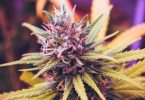These days, there are thousands of companies looking to market their hemp and cannabis products. There are so many options, each with their concomitant marketing jargon like “full-spectrum” or “broad spectrum,” or the myriad of sometimes cool, often confusing names bestowed upon one’s plants. So, it becomes important for consumers and medical patients to be able to choose between brands. Luckily, several organizations have created certificates that cannabis and hemp businesses can use to showcase their products and services in a standardized way. This article focuses on three: one for labs, one for hemp-derived products, and one for everyone.
ISO17025
ISO stands for the International Organization for Standardization. An analytical laboratory that advertises ISO17025 certification means that the lab has demonstrated compliance to the standards required. It is meant to convey analytical competency. Some key attributes of the certification include:
- Participation in proficiency tests (PT): a lab purchases a PT, which contains known concentrations of cannabis or hemp analytes like terpenes or cannabinoids, or contaminants like residual solvents. The lab processes and measures the sample and reports their findings, where upon they are scored against other labs.
- Method validation: the lab proves the viability of their analytical methods by measuring standards and evaluating their results using statistics. These analyses include measuring a method’s accuracy, the linearity of their calibration curves, or how small adjustments to the method affect the results.
- ISO17025 auditors also evaluate training records and standard operating procedures.
Certified Organic
Because cannabis products aren’t federally recognized just yet, products cannot be labeled as being certified USDA (United States Department of Agriculture) Organic. Hemp and its products can be labeled as organic, however, and many manufacturers have seen fit to cultivate their crops under these guidelines. Any downstream processing must also keep true to organic requirements to carry this label down the path to the final product. Hemp farmers must register their crops as organically grown through a certifying agency, and the USDA has a website where registrants can be found.
Auditors of the organic pipeline evaluate the farming and handling of the biomass, including its shipping, since there are regulations that govern transportation as well. Processors of organic biomass must get their protocols approved as well, from the grinding and extraction of the biomass, to the cleaning of extraction equipment.
So, for example, the winterization of hemp crude oil would need to incorporate organic ethanol from a supplier who can demonstrate their documentation. This documentation would need to be sent to the certifying agency prior to engaging in the extraction of the biomass. Further down the line, organic medium chain triglycerides (MCT) or hemp seed oil might be used for blending into edible oils. These carriers must also first be approved and added to a company’s organic ingredient list.
Prior to being able to get products organically certified through the USDA, a program called Clean Green, advertised as “the closest thing to organic,” was created. Amazingly, this program was implemented way back in 2004, in California, for cannabis businesses who saw the need to demonstrate their products’ organic roots. The program has since been adopted by several other states. The Clean Green website has a directory of companies who foresaw the need for this quality seal of approval.
Americans for Safe Access — Patient-Focused Certification
Americans for Safe Access (ASA) has been a fount of information since its inception in 2002. Its mission is to “ensure safe and legal access to cannabis for therapeutic use and research.” More recently, ASA created its patient-focused certification, or PFC. This 3rd-party certification incorporates the guidance of several other entities like the American Herbal Products Association and the American Herbal Pharmacopoeia. The PFC offers training programs for cultivation, manufacturing, distribution, and laboratory sectors. The program also offers services like inspection preparedness assessments to help businesses get ready for licensing.
These three certifications bolster the legitimacy of cannabis- and hemp-derived products. They are not the only three options, however. Others include the US Hemp Authority™ certification or the United Patients Group. Even a certificate of analysis provided via a QR (quick response) code on a product label can signify product quality, provided you don’t need a scientist to interpret what the results mean.








